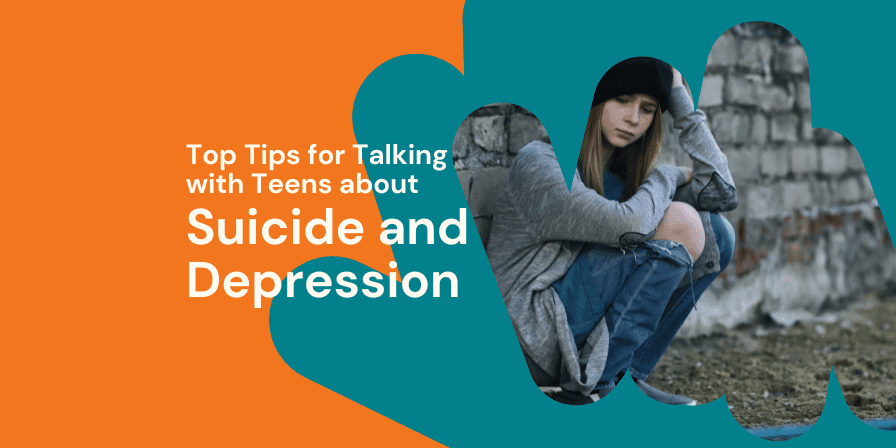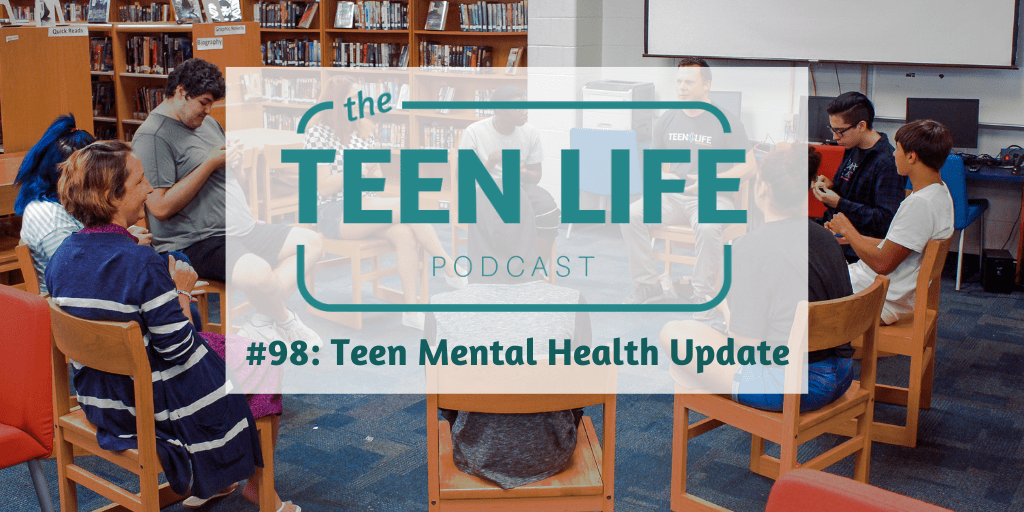Practical tips to help parents and caring adults talk with teens about depression
Every day, parents and school counselors and teachers see students dealing with depression. Recently, a highly publicized report by the CDC stated that, “In 2021, almost 60% of female students experienced persistent feelings of sadness or hopelessness during the past year and nearly 25% made a suicide plan.”
More than ever, it is vital that you talk with teens about depression and suicide. Remember, talking about it won’t give teenagers ideas, but it will let them know that you care and that you can handle the conversation if or when they need to it.
Fortunately, there are many resources out there to help us as parents, counselors, teachers, and friends know how to do that. One such resource is Dr. Michele Borba. She has interviewed hundreds of teens and held countless conversations with them about ways that adults can help or hurt.
Here are Dr. Borba’s top tips for having this discussion with your teen
(Posted with permission from her blog.)
1. Review the facts first.
Chances are the teen suicide pact story will be discussed at school or amongst your child’s peers, so review the story before you talk. More often than not, the stories your child hears won’t be accurate and can fuel anxiety. That’s why you need to clarify the real facts.
2. Find the right time.
Plan to talk with your teen about suicide and depression. Just make sure it’s a relaxed, uninterrupted time. Ideally you want to have this chat during a part of the day when your child is most receptive to talking.
3. Begin with a simple question or direct statement.
A few ways to start the dialogue: “Have you heard the sad news about the girls who killed themselves?” or “What are your friends saying?” or “Let’s talk about what you just saw on the news.”Listen to your teen and follow his or her lead.
4. Be honest and direct, but careful.
Give the details your child needs to know. Withhold facts or details that are not in your child’s best interests. Be prepared for lots of questions — or none at all. Clear up any misunderstandings about suicide, depression or death that your child may have. If you don’t have an answer, just admit you don’t know and say you’ll get back with the answer. The key is to keep that conversation going!
5. Describe depression.
“Yes, it’s a sad story, but I want to talk to you about suicide and depression.” Your talking points might include stressing that depression is not a phase, nor something kids can shrug off by themselves. Depression is a serious disease that needs a medical doctor.
To help your child see the difference between normal sadness and depression, apply the word “too” to your talk: The sadness is too deep. The depression lasts too long or happens too often. It interferes with too many other areas of your life such as your home, school, friends. The best news is, when diagnosed early and properly treated, kids almost always feel better.
Stress to your teen
“If you ever feel so sad or scared or helpless, please come and tell me so we can work together to make things right. Depression is treatable.”
6. Be prepared to be unprepared.
There is no way of predicting how your teen will respond to such a tough subject. The key is to answer any or all questions as they emerge. Let your teen know you are always available to listen or help.
7. Talk about cyber-bullying.
Emphasize that you recognize bullying and cyberbullying is a growing and serious problem. Ask how often bullying is happening at school, what the school’s bullying policy is and how safe your child and her friends feel. Use the example from this tragic story to stress that cyber-bullying is painful and that intentionally causing another child pain is never acceptable.
Use your chat as the opportunity to review your rules about the Internet and cell phone. Talk about the dangers posting anything that is hurtful — that there are no take backs and that hurtful actions can have horrific consequences.
Also stress that if your child is ever cyber-bullied to please come and tell you. Beware that tweens or teens say they fear telling parents because they do not want computer privileges removed. Be careful so you do not sound too punitive. Instead, stress that the child should print out the evidence and you will contact the server to change the passwords. Other blogs cover cyber-safety issues, how to monitor your child’s online history and signs your child is cyber-bullied.
8. Teach “Tattling” vs “Reporting.”
When it comes to preventing tragedies, kids may well be the best metal detectors: the majority of adolescents who commit homicide or suicide share their intentions with a peer. Impress on your teen the importance of telling an adult “legitimate concerns” with the guarantee that their report will be taken seriously. Telling an adult that someone is hurt or could get in trouble is not the same as tattling: It’s acting responsibly. Explain that reporting is not to get a friend in trouble but to help them stay out of trouble or harm.
9. Discuss “safety nets.”
Identify adults your child feels safe with, other people they can talk to when issues arise. Stress that people are always available to help your children or their friends with any kind of trouble. Mention the 24-hour confidential USA National Suicide hotline: 800-784-2433 or 800-273-8255, with trained people who can listen and help kids any hour of any day.
Above all, emphasize:
No problem is so great that it can’t be solved!
Depression is treatable. We need to make sure our children know they can come and talk to us about anything.
Keep reading for four ways to help teens with mental health issues, like depression or suicidal thoughts.
Four ways to help teens suffering from depression
Teach coping skills
- Who can they talk to when they are in trouble?
- Positive coping skills: music, working out, art, hanging out with friends
- Social media and relational boundaries
- HOPE
Be aware of resources
- School
- Counseling
- Hotlines
- Church
- Other trusted adults
Recognize the signs of mental health issues and addiction so you can get them help when they need it
Learn more about the difference between a moody teenager and depression here and here.
Also take a look at these resources:
- Mental Health America: Depression in Teens | Depression Screening
- Nemours Teen Health: Depression: What You Need to Know | Talking to Parents About Depression
- Teen Life Podcast: Suicide Prevention | Suicide Terms | Suicide | Leslie Culver | Becky Taylor
Support programs that are working to help teens in schools
Teens spend a significant amount of their week in school. Let’s support them where they are. Learn more about how Teen Life facilitates on-campus Support Groups!






